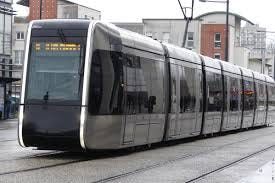Philippa Foot came up with the trolley car thought experiment in 1967. Michael Sandel brilliantly describes the problem here:
timings
00 to 2.00 basic trolley car
4.30 to 5.45 fat man on bridge variation
10 to 12.19 Doctor
15.18 ppt slide of consequential versus categorical
As you will see, one of the students compares killing the one worker to genocide, which gives Sandel a difficult moment as it’s not really relevant. Another student then mentions 9/11 and Sandel agrees with the idea but moves away quickly (possibly worried that there may be students directly affected by 9/11).
It is, however, a perfect analogy for the trolley car. You are the President. A plane flies towards New York with no radio contact but you know there are passengers on board (“let’s say you know that for certain”). Do you order your fighter pilot to shoot down the plane?
With the second analogy (fat man on the bridge- the laughter feels today a little strange) the old people in society are the fat people on the bridge. Do you push them over the edge, in front of the train, to stop the economic train crashing?
We have seen many jounalists questioning politicians, simultaneously complaining about the deaths and the damage to the economy. This is not playing devil’s advocate, this is just ducking the moral responsibility which every citizen in a democratic country holds.
For the politicians, the best reply would be, “What would you do?” to which the journalists would then retort, “Ah, but I’m not the person who has to make that decision, am I?”
We need a culture where journalists have to give their opinion, not simply try to tie politicians in knots. Being a political leader is a tough job, and the more we pretend there are easy answers, the less likely we are to find any.
Related reading:
https://www.fastcompany.com/90308968/why-the-trolley-dilemma-is-a-terrible-model-for-trying-to-make-self-driving-cars-safer
https://www.theatlantic.com/technology/archive/2015/10/trolley-problem-history-psychology-morality-driverless-cars/409732/
https://www.theatlantic.com/health/archive/2014/07/what-if-one-of-the-most-popular-experiments-in-psychology-is-worthless/374931/
https://qz.com/1716107/the-problem-with-the-trolley-problem/
More Michael Sandel
The tyranny of merit
2,322,451 views |TED2020
Those who landed on top came to believe that their success was their own doing, a measure of their merit, and that those who lost out had no one to blame but themselves.
This way of thinking about success arises from a seemingly attractive principle. If everyone has an equal chance, the winners deserve their winnings. This is the heart of the meritocratic ideal.
At Ivy League universities, for example, there are more students from the top one percentthan from the entire bottom half of the country combined.
We should renew the dignity of work and place it at the center of our politics.
We should remember that work is not only about making a living,it's also about contributing to the common good and winning recognition for doing so.
Robert F. Kennedy put it well half a century ago.
Fellowship, community, shared patriotism. These essential values do not come from just buying and consuming goods together.
They come from dignified employment, at decent pay.
The kind of employment that enables us to say, "I helped to build this country. I am a participant in its great public ventures."

